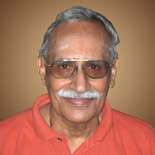|
Go to Part 11 IV – Freedom from longing or vairagya What flows from viveka is objectivity in our thinking. When it is cultivated, it matures into dispassion towards the previous goals of money, possession, power, security, pleasure, and of reaching the higher worlds after death [62]. As a sample, we may analyze it in some detail in respect of money, which we passionately seek. The value of money cannot be disputed. It is obvious that we cannot live without it, since it provides goods and services. So, money has an objective value. But, if we think that it solves our problem of insecurity, then we are adding to it a value that it does not have. This is because money does not address the root cause of this problem, which is our sense of inadequacy and incompleteness. It also contributes to our insecurity, as it can be lost, stolen or misappropriated. Thus, we add to money the value of the provider of guarantee against insecurity that was not there at all. If we make similar analysis in respect of the other objects that we seek, we would come to know that we have been viewing them also differently from what they are by conferring on them a sought after value that they do not have [63]. When we realize that they do not have what we really want, we see things as they are. The object becomes just an object that serves to meet particular needs rather than as the answer to our insecurity and unhappiness.
Seeing the limitations of money, power and acceptance of others has to be done repeatedly. Repetition is necessary since the false value supplied to them is not a mistake for which one time correction is adequate. Our society gives importance to such false values and they are firmly rooted in us. So, repeated understanding of their limitations is necessary for us to grow out of them. Only then, we can become free from the deep attachment that we have towards them. The freedom from longing for them, which arises out of such discrimination, is called vairägya [64].
Some times false detachment [65] comes from mental or physical pain. This is an impulsive reaction and it is temporary and valueless since it is not the outcome of objective discernment. A person’s dear friend suddenly died. Only on the previous day, he had spent the entire evening with him. Now, his friend is dead and is being cremated. While watching the proceedings, the feeling of impermanence of life and relationships surged in him. Nothing of the world seemed to be of any consequence to him. On returning home, he found a brass vessel filled with water kept outside the door of his house so that he may wash his feet before entering it. Even as he saw the vessel, he pulled up his wife for leaving it unattended outside the house. The person who was only a few minutes ago disenchanted with everything could not now stand even the distant probability of losing a small article!
Vairägya does not also mean running away from our situation in life or cultivating hatred for the worldly activities. Vedänta does not say that the world is sorrowful (duùkhätmaka) and that it has to be shunned. It says that we are primarily responsible for our mental state and not the world as we impose on things values that they do not have and become sad when our expectations are belied. So, neither blaming the world nor withdrawing from it as a reaction is going to solve our problem.
It is also not necessary for us to hate anything to have dispassion towards it. When we throw away the peel of the banana, it is not because we hate the peel but because we do not need it. We do not feel that we have renounced the banana peel or that we have done a great sacrifice by discarding it. Similarly, our dispassion towards our earlier pursuits is simply born out of the understanding that it is futile to depend on them to get what we want. We keep away from them since they do not serve our purpose.
We need not also have any distaste for the essential transactions with the world since we are doing only what is necessary without any personal agenda. By maintaining this discrimination, we can actually enjoy doing them without being diverted from our ultimate goal.
Often the members of the family and friends of the person who has lost interest in worldly matters feel sorry for him. This is like sympathizing with the person who has given up the banana peel. In fact, the person with dispassion will be rightly feeling sorry for others for being totally lost in pursuits, which will ultimately prove to be futile!
It is through viveka and vairagya that the natural propensity of the mind to be involved with the outside world gets curbed. As such, they constitute the foundation of the requisite qualifications.
V - Gaining a hold over the mind (shama) and the organs of perception and action (dama) We function through our organs. Some of them are external like the sense organs and the organs of action. The sense organs are the eyes, the ears, the tongue, the nose and the skin. The organs of action are mouth, hands, legs, organs of excretion and reproduction. Some, which are not organs in the usual sense, are internal like the mind. They are in the form of thought modifications called våtti. Våtti is of three main types. One type is manas or the mind. Thoughts, emotions, desires, doubt and vacillations are all manas. There is another type of thinking, which is deliberate enquiry. When there is resolution, decision and will, it is called buddhi. Recollection and memory are called citta. Manas, buddhi and citta are collectively called antaùkaraëa or the internal organ. It is through the antaùkaraëa that we can inwardly think, feel, will, imagine, remember, rejoice, regret and so on without using any of the ten organs. Often the antaùkaraëa is itself referred to as the mind. The sense of ownership of the antaùkaraëa is the I-sense, aham. This is the individual “I” thought or the one who employs the antaùkaraëa. Ahaà-kära is the sense of “I-ness”.
Our powers are the expressions of the mind and are grouped as icchä-çakti (desiring power), jïäna-çakti (knowing power) and kriyä-çakti (acting power). Regulation of the mind is meant for channelising these powers and is, therefore, of great importance. But, as our habits die very hard, we find it very difficult to do so even when we gain some degree of discrimination [66].Bhagavadgétä says that even a man of knowledge acts according to his nature [67] owing to continuance in some degree of attachment to desired objects and aversion towards undesired objects. [68] This happens, as the emotional value for the object is different from its cognitive or intellectual value. Cognitively one may lose the value for an object, but the object still has an emotional hold on the mind. Emotions make the person much more than cognition. They sweep aside the cognitive person and take over. Therefore, it is only through the emotional resolution of the mind that dispassion becomes a reality.
This is not easy but can be achieved through sustained effort. In the mind, the first thought arises by itself and we have no control over it. But we have control on how far we go with the thoughts that arise out of the first thought. Our mental state is not the outcome of the first thought but is the result of our identification with the stream of thoughts that follows. We can decide not to be led by the thoughts that lead us astray by using our reasoning faculty. When the thoughts lack support, they are not sustained and the mental condition resolves. Such ability makes the mind available for study. This ability is called çama and is a very important qualification [69].
There are occasions when we come under the grip of emotions and become irrational in thinking and rash in our speech and action. This happens when the sway of emotion caused by our likes and dislikes prevents the discriminating capacity from functioning. In such situations, the organs of perception [70] and of action [71] through which the mind seeks to express itself have to be restrained. It is like catching hold of the tail of the frolicking calf when we have lost hold of the rope tied to its neck. Whenever the functioning of any organ is inappropriate, we have to practice to deliberately withdraw it from its undesirable activities. This is called dama [72] and it ensures appropriate behaviour. If this were not possible, the rash action has to be diverted to innocuous targets, like punching the pillow instead of the person, shouting in the bathroom instead of at the person. We can also simply withdraw from the scene.
Kaöha Upaniñad (1.3.3 to 1.3.9) uses the imagery of the seeker traveling in a chariot drawn by five horses to bring home the importance of çama and dama. The body is compared to the chariot; the senses to the horses; the sense-objects to the roads; the mind to the reins; the intellect to the charioteer who holds the reins and drives the chariot and the seeker to the master. It says that only a charioteer with discriminative intellect who guides the horses with the reins of the controlled mind can by proper use of the senses take the master along the right road to the end of the journey.
62.Virägaù kaù? What is Viräga? Ihasvargabhogeñu icchärähityam| The absence of desire for the enjoyment (of the fruits of actions) in this world, as also in the higher world.(Çaìkaräcärya, Tattva-bodha, Central Chinmaya Mission Trust, p. 13.).
Go to Part 13
|
|||
|
|||


www.advaita.org.uk
Advaita for the 21st Century



Vedanta - Part 12
VEDĀNTA the solution to our fundamental problem
D. Venugopal

D. Venugopal is a student of Swami Paramarthananda and a direct disciple of Pujya Swami Dayananda. He has successfully completed the long-term residential course in Vedanta and Sanskrit conducted from May 2002 to July 2005 at the Arsha Vidya Gurukulam, Anaikatti.
Go to CONTENTS
Biography
Buy from Amazon UK
. Available from Bharatiya Vidya Bhavan centers at London, New York and Sydney.
. Also through the IBH Books & Magazines Distributors Pvt. Ltd. - contact contact@ibhworld.com. In case of difficulty,pvsankarankutty@bhavan.info can be contacted.
BOOK DETAILS
Publisher: Bharatiya Vidya Bhavan
ISBN: 978-81-7276-457-9
Format : Paperback
Pages: 324
List Price: US$7.00
Where to Buy
AUTHOR DETAILS

